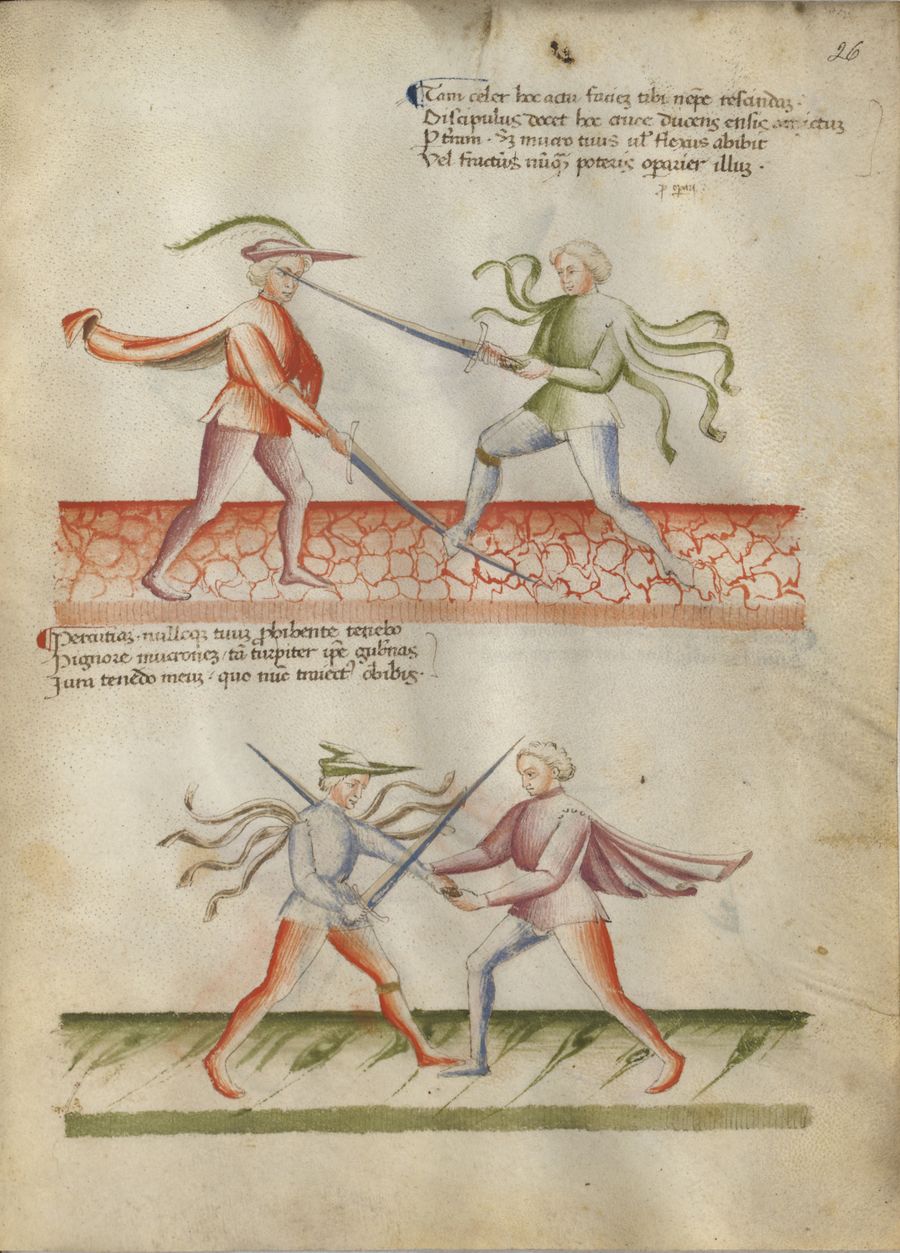|
|
You are not currently logged in. Are you accessing the unsecure (http) portal? Click here to switch to the secure portal. |
Difference between revisions of "User:Kendra Brown/Florius/English MS Latin 11269 26r"
| (16 intermediate revisions by 3 users not shown) | |||
| Line 16: | Line 16: | ||
| | | | ||
Because of your hilt which I hold in my hand,<br/> | Because of your hilt which I hold in my hand,<br/> | ||
| − | I will strike you and your sword will be | + | I will strike you and your sword will be my prize.  |
| {{section|Page:Pisani-Dossi MS 22a.jpg|22a-b}} | | {{section|Page:Pisani-Dossi MS 22a.jpg|22a-b}} | ||
|} | |} | ||
| Line 23: | Line 23: | ||
</noinclude> | </noinclude> | ||
<poem> | <poem> | ||
| − | {{par|b}} | + | ✅{{par|b}} I will cut your face open so swiftly using this action |
| − | + | From the cross,<ref>cruce is locative case, which the translation reflects</ref> the student teaches this: fashioning a cloak for the sword from the ground. | |
| − | But your | + | But your tip will depart either bent |
| − | or | + | or broken. You will never be able to use that [sword]. |
| + | |||
| + | ✅{{par|r}} I will hit and, not prohibited by anyone, I will keep your | ||
| + | sword hostage / while maintaining the rules, you yourself | ||
| + | direct mine so disgracefully / you will now die transfixed by it [my sword]. | ||
| − | |||
</poem> | </poem> | ||
<noinclude>[[file:MS Latin 11269 26r.jpg|900px]]</noinclude> | <noinclude>[[file:MS Latin 11269 26r.jpg|900px]]</noinclude> | ||
Latest revision as of 19:38, 1 July 2025
Latin 26r
- ¶ Tam celer hoc actu faciem tibi nempe rescindam.
Discipulus docet hoc cruce ducens ensis amictum
Per terram. Sed mucro tuus vel flexus abibit
Vel fractus numquam poteris operarier[1] illum.
¶ Percutiam nulloque tuum prohibente tenebo
Pignore mucronem / tam turpiter ipse gubernas
Jura tenedo meum. quo nunc traiectus obibis.
Italian
|
From the crossing at the ground which the Scholar makes |
[21a-c] Per lo incrosar de terra che fa lo scolar |
|
Because of your hilt which I hold in my hand, |
[22a-b] Per lo mantiger[!] tuo che in man io tegno |
English 26r
✅¶ I will cut your face open so swiftly using this action
From the cross,[2] the student teaches this: fashioning a cloak for the sword from the ground.
But your tip will depart either bent
or broken. You will never be able to use that [sword].
✅¶ I will hit and, not prohibited by anyone, I will keep your
sword hostage / while maintaining the rules, you yourself
direct mine so disgracefully / you will now die transfixed by it [my sword].

